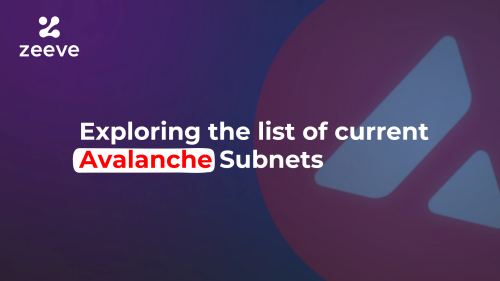The Five Percent Threshold; The Middle East, Military Spending and Blockchain Technology
In order to understand the military implications of Blockchain Technology, we must first recognize what benefits it would hold for armies around the world. Three of the main components of Blockchain Technology are its distributed consensus, immutability and anonymity. Currently, armies around the world have the ability to research and apply blockchain technology evaluating proposals in fields such as logistics, procurement, and finance. If you look at the Middle East and GDP, we could conclude which countries may well lead in this military technological revolution. Consequently, the four Middle Eastern Countries whose defense spending is above 5% of GDP, are already leaders in Middle Eastern civilian blockchain technology, thus the jump into military technology would not be so far off.
According to a recent Reuters report from July 10, 2018, The Capital Market Authority of Saudi Arabia has approved fintech licenses for Manafa Capital and Scopeer to provide crowdfunding investment services on a trial basis.” Furthermore, we know that the Saudi National Bank is developing Blockchain Technology for cross-border payments. The goal of the Kingdom, which currently spends 8.9% of GDP on defense, is to advance technology and provide capital for investment, thus improving the economy and job market at the same time. Once this succeeds, I believe that military applications will not be far behind.
Blockchain Solutions and Services CO (BSS) recently announced that it would roll out the necessary technological infrastructure to promote the adoption and implementation of Blockchain technology, and interestingly enough, BSS is a Omani government-backed entity. Thus, giving the BSS the legitimacy of a country backing its projects. According to the CEO of BSS, Dr Khalid MW Tahhan, ultimately “this effort is all about collaboration. It is a distributed source of truth, trust, and consensus. Efficiency, speed and security are key benefits for local companies that can utilize this facility.” Once again, efficiency, speed, and security are all main components of a successful military, especially for a country that spends 8.4% GDP on defense.
Israel which is known internationally as the “Startup Nation” currently spends 6.2% of GDP on defense. Israel’s military and civilian partnership has transformed the country into the epicenter for cybersecurity technology and entrepreneurship. Israeli incubators for all technology fields are expanding with the formation of a new technology center outside of Beersheva, thus uniting widespread technologies including blockchain technology itself. According to the Israeli Blockchain Association, there are now more than 200 blockchain startups based in Israel, most within fintech and protocols/core infrastructure sectors. Israel’s military prowess and the IWI (Israel Weapons Industry) cooperation with civilian companies such as Elbit, offers a smooth transition from startups transferring their knowledge and blending into the IDF and IAF. Consequently, due to this partnership, Israel is already at the forefront of military adaptation of blockchain technology.
It is well known that the UAE, which spends 5.4% of GDP on defense is on the cutting edge of Blockchain technology. Dubai 2020 is an important project for the future of this technology and the conference being planned for that same year, will hold significant implications for the region. The UAE intends to become the first Blockchain powered government, with technology being implemented throughout all sectors. If this is true on a civilian level, undoubtedly it will also occur militarily. Accordingly, the UAE could save approximately 25.1 million man-hours and over a billion dollars a year through the implementation of this technology. It is not a far leap to conclude that money saved would be utilized by the military and its own application of blockchain technology.
As we can see, each of the 4 leading countries mentioned above, have the capability to harness their knowledge of blockchain technology and integrate it into their military infrastructure. When a countries GDP spending is over 5 percent, there is a want to look towards the future and see how best this money can be spent. Without a doubt, these countries will not want to invest capital into already existing technologies, but rather on integration and future advances. It is for this reason, that I believe military advances in blockchain technology will be led by the above mentioned our countries in the Middle East.





Responses